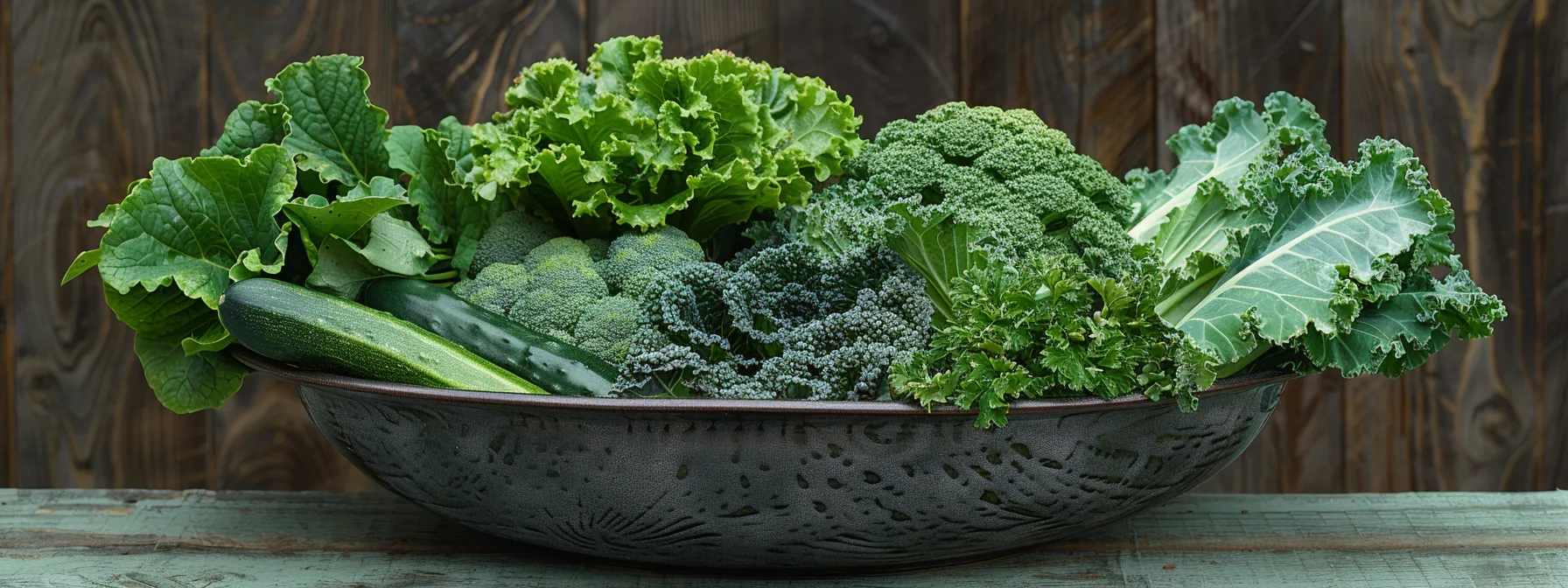Are you struggling with stubborn belly fat despite your best efforts? Many individuals face this issue, often unaware that their food choices play a crucial role. “Organic Food Choices for a Flatter Stomach” explores how organic foods can assist in reducing bloating and promote a healthier gut. The article will cover essential organic fruits and vegetables, discuss beneficial grains and legumes, and highlight organic dairy alternatives that support gut health. By engaging with this content, readers will discover effective strategies to reduce belly fat and improve overall wellness, helping to tackle issues like added sugar intake and related allergies.
Key Takeaways
- Organic foods can improve digestion and help achieve a flatter stomach
- Choosing whole grains over processed foods supports metabolic health and reduces cravings
- Incorporating organic fruits offers essential nutrients that enhance gut health and detoxification
- Fermented foods, like yogurt, promote a balanced gut microbiome for better digestion
- Planning meals with organic ingredients can bolster nutritional intake while managing weight effectively
Understanding the Role of Organic Foods in Reducing Belly Fat

Organic foods can play a significant role in achieving a flatter stomach by promoting healthier eating habits and improving digestive health. This section will explore how flat tummy tea organic choices, such as soups made with olive oil, contribute to waist reduction, especially within the framework of the Mediterranean diet. Additionally, the comparison between organic and conventional foods will highlight their impact on conditions like irritable bowel syndrome and overall gut health.
How Organic Choices Contribute to a Flatter Stomach
Incorporating organic foods into a diet can aid in achieving a flatter stomach by enhancing metabolic function and reducing insulin resistance. Foods rich in whole grains, such as organic oats and brown rice, are beneficial for maintaining stable blood sugar levels while providing essential vitamins and nutrients that support overall health. These organic options help create a balanced diet that, combined with regular physical activity such as cycling, can effectively assist in weight management and decrease abdominal fat mass.
Comparing Organic and Conventional Foods
The comparison between organic and conventional foods reveals significant differences that can influence outcomes such as belly fat reduction. Organic foods often contain higher levels of nutrients and fewer synthetic additives, which can positively affect metabolism and reduce signs and symptoms of digestive issues. For instance, incorporating organic legumes and healthier oils, like olive and almond oil, provides essential fats without the saturated fat found in many conventional products, supporting a more effective body composition and improved overall health.
Digestive Benefits of Eating Organic
Organic foods provide various digestive benefits that can support efforts to reduce belly fat. Consuming organic options, such as cottage cheese and a variety of fruits and vegetables, enhances gut health while offering a richer nutrient profile compared to conventional alternatives. Proper hydration, including drinking water alongside organic meals, promotes digestion and can minimize bloating, ultimately contributing to a flatter stomach:
- Increased fiber intake from organic fruits and vegetables aids digestion.
- Cottage cheese serves as a good source of protein while fostering gut-friendly bacteria.
- Health professionals recommend minimizing processed foods, like fried options such as French fries, for better metabolic function.
- Choosing a healthy sugar substitute can help maintain balanced blood sugar levels and support digestive health.
Organic foods can play a significant role in achieving a flatter stomach. Now, it’s time to discover the essential organic fruits that can help make that goal a reality.
Essential Organic Fruits for a Flatter Stomach

Incorporating specific organic fruits into a diet can significantly contribute to achieving a flatter stomach. Berries, rich in antioxidants, help combat inflammation and may support weight management. Organic citrus fruits enhance detoxification, while organic apples boost fiber intake, promoting healthy digestion and acting as prebiotic sources. These fruits also play a role in maintaining stable blood sugar levels, which is essential for reducing the risk of type 2 diabetes.
Incorporating Berries Rich in Antioxidants
Incorporating berries rich in antioxidants into a diet plays a vital role in supporting digestion and aiding weight management. These fruits, which include options like blueberries, strawberries, and raspberries, are not only low in calories but also high in fiber, making them superior alternatives to processed items such as white bread. Research indicates that a diet high in antioxidants can help combat obesity and contribute to improved mood, making berries an excellent addition for those seeking to maintain a healthier lifestyle.
The Detoxifying Power of Organic Citrus Fruits
Organic citrus fruits, such as oranges, lemons, and grapefruits, are instrumental in promoting detoxification and supporting digestive health. These fruits provide essential nutrients, including potassium, which aids in muscle function and reduces bloating, a common concern for those aiming for a flatter stomach. By combining these citrus options with healthy fats from oily fish and proteins like peanut butter or incorporating them with crunchy snacks like celery, individuals can create a balanced meal that not only enhances flavor but also addresses digestive needs effectively.
Boosting Fiber Intake With Organic Apples
Organic apples are an excellent source of dietary fiber, which is essential for digestive health and can aid in achieving a flatter stomach. A higher fiber intake helps regulate blood pressure and supports overall gut function. Including organic apples in a balanced diet, perhaps paired with a nut butter or crumbled feta, can enhance taste while providing the necessary nutrients to combat the effects of sleep deprivation and maintain healthy digestion, ultimately contributing to weight management efforts.
Choosing the right fruits can set the stage for comfort. Next, effective organic vegetables await, ready to combat that annoying bloating and keep the body feeling light.
Effective Organic Vegetables to Reduce Bloating

Incorporating effective organic vegetables into a diet can significantly aid in reducing bloating and promoting a flatter stomach. Leafy greens enhance metabolism and serve as a crucial ingredient for overall digestive health. Cruciferous vegetables offer unique digestive advantages, particularly for those with lactose intolerance. Cucumbers not only provide hydration but also help reduce water retention, making them a beneficial choice alongside aerobic exercise and protein sources like tempeh and beans.
Enhancing Metabolism With Leafy Greens
Leafy greens, such as spinach and kale, are known for their metabolism-boosting properties, making them essential in achieving a flatter stomach. These vegetables are low in calories and high in essential nutrients, allowing individuals to feel energized without contributing to weight gain. The Food and Drug Administration recognizes the importance of a balanced diet rich in vegetables to prevent health issues, including stroke risks and metabolic syndromes. Integrating leafy greens into meals, whether in salads or smoothies, not only enhances metabolic function but also supports overall digestive health:
- Incorporates essential vitamins and minerals.
- Promotes digestion and reduces bloating.
- Can be combined with lean proteins or healthy fats for balanced meals.
- Encourages healthy eating habits even when using a standing desk.
Digestive Advantages of Cruciferous Vegetables
Cruciferous vegetables, such as broccoli and Brussels sprouts, offer significant digestive advantages that can support a diet aimed at reducing bloating and promoting a flatter stomach. These vegetables are naturally low in sodium, making them excellent choices for those looking to manage water retention while also being filling enough to curb appetite. The bottom line is that incorporating these nutrient-rich options into meals can enhance digestion, offering essential vitamins and minerals while acting as a natural herb to bolster overall gut health.
Hydration and Water Retention Reduction With Cucumbers
Cucumbers are an excellent choice for maintaining hydration and reducing water retention, contributing to a flatter stomach. Their high water content and low carbohydrate composition help flush out excess sodium while promoting nutrient absorption, which is crucial for metabolic health. Including cucumbers in meals, perhaps alongside oatmeal or as a dip with hummus, can enhance satiety without adding significant fat or calories, supporting weight management effectively.
To further ease discomfort, one must not overlook the role of grains and legumes. These humble foods carry their own set of benefits, offering nourishment that complements the vegetables so skillfully chosen.
Beneficial Organic Grains and Legumes

Beneficial Organic Grains and Legumes
Choosing whole grains over processed options is fundamental for a flatter stomach, as they provide essential nutrients and support digestive health. Organic quinoa stands out for its high-protein content, while organic beans and lentils help sustain fullness, reducing cravings for less healthy foods such as soft drinks. This section will delve into these beneficial choices, highlighting their impact on waist management.
Selecting Whole Grains Over Processed Options
Selecting whole grains over processed options is essential for combating abdominal obesity and enhancing overall digestive health. Whole grains, such as quinoa and brown rice, provide critical nutrients that processed foods lack, supporting metabolism and reducing cravings for unhealthy meat products. Furthermore, incorporating sources of fish oil in meals can complement whole grains by providing healthy fats, while probiotics found in fermented foods promote gut health, leading to more effective weight management strategies that can easily fit into one’s daily routine, like taking the stairs instead of the elevator.
High-Protein Benefits of Organic Quinoa
Organic quinoa is a nutritious grain that provides significant high-protein benefits, making it an excellent choice for individuals aiming for a healthy diet focused on weight management. With approximately 8 grams of protein per cup when cooked, quinoa aids in curbing hunger and promoting feelings of fullness, which can help prevent unnecessary weight gain. This grain is also lactose-free, making it suitable for those with lactose intolerance who seek alternative protein sources in their meals.
Sustaining Fullness With Organic Beans and Lentils
Organic beans and lentils are excellent choices for those aiming to sustain fullness and manage their weight effectively. High in fiber and protein, these legumes promote healthy digestion and support beneficial bacteria in the gut, which can be particularly advantageous for individuals dealing with metabolic syndrome. Additionally, incorporating beans and lentils into a fasting regimen can enhance feelings of satiety, helping to curb cravings and reduce overall caloric intake.
As one explores the benefits of organic grains and legumes, the natural world offers even more. Organic dairy products and alternatives can enhance gut health, providing a foundation for well-being.
Organic Dairy Products and Alternatives for Gut Health

Organic dairy products and alternatives play a significant role in promoting gut health, which can contribute to achieving a flatter stomach. Probiotic yogurt aids digestion and helps manage chronic pain, while exploring organic plant-based milk options can provide beneficial nutrients without wheat-related concerns. Fermented foods also support healthy gut flora, enhancing overall digestive well-being and supporting effective strength training practices.
Improving Digestion With Probiotic Yogurt
Probiotic yogurt made from organic dairy serves as an effective means of enhancing digestion, which can contribute to reducing waist circumference. This type of yogurt contains live cultures that promote gut health by balancing microbiota and aiding in the breakdown of refined grains. For added health benefits, mixing probiotic yogurt with a splash of fresh lemon juice not only improves flavor but also supports the digestive process, making it a practical choice for those aiming for a flatter stomach.
Exploring Organic Plant-Based Milk Options
Exploring organic plant-based milk options can be beneficial for those looking to manage abdominal pressure and reduce bloating. Almond milk, for instance, is low in calories and can provide a creamy substitute for dairy while being heart-healthy, potentially addressing issues related to hypertension. Additionally, peanut milk presents a protein-rich alternative that supports muscle health without the digestive discomfort often associated with traditional dairy products, making it a suitable choice for individuals striving for a flatter stomach.
Fermented Foods to Support a Healthy Gut Flora
Fermented foods play a crucial role in supporting healthy gut flora, which can contribute to achieving a flatter stomach. Options such as organic yogurt and kefir are rich in probiotics, enhancing digestion and justifying their inclusion in a daily diet. These fermented products not only promote detoxification but also provide essential nutrients like calcium and iron, which support overall health and guard against cardiovascular disease. Including these foods in breakfast, perhaps alongside a serving of cereal, can effectively enhance gut health and help individuals manage their weight more efficiently:
Gut health thrives on good food. Next, discover simple ways to weave organic choices into daily meals.
Strategies to Incorporate Organic Foods Into Your Diet

Implementing organic foods into daily meals can significantly aid in achieving a flatter stomach. Budget-friendly tips for buying organic enable individuals to make healthier choices without overspending. Planning meals with organic ingredients enhances metabolism and reduces inflammation, while easy organic recipes focused on reducing belly fat provide practical solutions to support overall health. Each aspect contributes to lowering body mass index and managing adipose tissue effectively.
Budget-Friendly Tips for Buying Organic
When aiming to incorporate organic foods into one’s diet without overspending, individuals can take advantage of seasonal produce to find better prices. For instance, purchasing organic onions during their peak season often reduces costs while enhancing meals with flavor and additional nutrients, potentially addressing factors linked to digestive health. Additionally, considering an elimination diet that focuses on reducing processed foods can lower the risk of unhealthy eating habits and redirect attention to affordable organic options like kidney beans, which are both nutritious and cost-effective for promoting overall well-being and a flatter stomach.
Planning Meals With Organic Ingredients
Planning meals with organic ingredients is essential for promoting a flatter stomach while supporting overall health. Incorporating whole foods, such as organic brown rice, can provide necessary nutrients that enhance digestion and fuel muscle development. Additionally, utilizing organic products in baking recipes allows individuals to control calorie intake while creating healthier versions of their favorite dishes, ultimately benefiting the gastrointestinal tract and reducing bloating.
Easy Organic Recipes Aimed at Reducing Belly Fat
Creating easy organic recipes focused on reducing belly fat can offer individuals a practical and enjoyable way to support their health goals. Simple dishes that incorporate organic ingredients, such as a quinoa salad with diced vegetables and a lemon-olive oil dressing, can provide essential nutrients while keeping insulin levels stable, which is key to managing blood sugar and reducing discomfort in the stomach. For those looking to implement these recipes, incorporating ingredients like organic spinach or cucumbers not only enhances flavor but also contributes to hydration and overall digestive health:
- Quinoa salad with lemon-olive oil dressing
- Vegetable stir-fry with organic greens
- Overnight oats topped with fresh organic berries
- Homemade vegetable soup with organic legumes
Conclusion
Choosing organic foods plays a crucial role in achieving a flatter stomach and enhancing overall health. Organic options, rich in nutrients and fiber, support digestion, stabilize blood sugar levels, and foster a healthy gut microbiome. By incorporating whole grains, fruits, vegetables, and legumes into daily meals, individuals can manage weight effectively while reducing bloating and cravings. Prioritizing organic food choices not only fulfills dietary goals but also lays the foundation for a healthier lifestyle.
